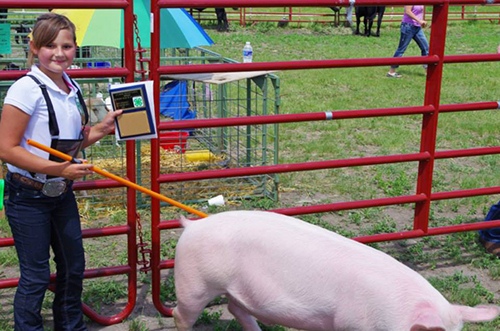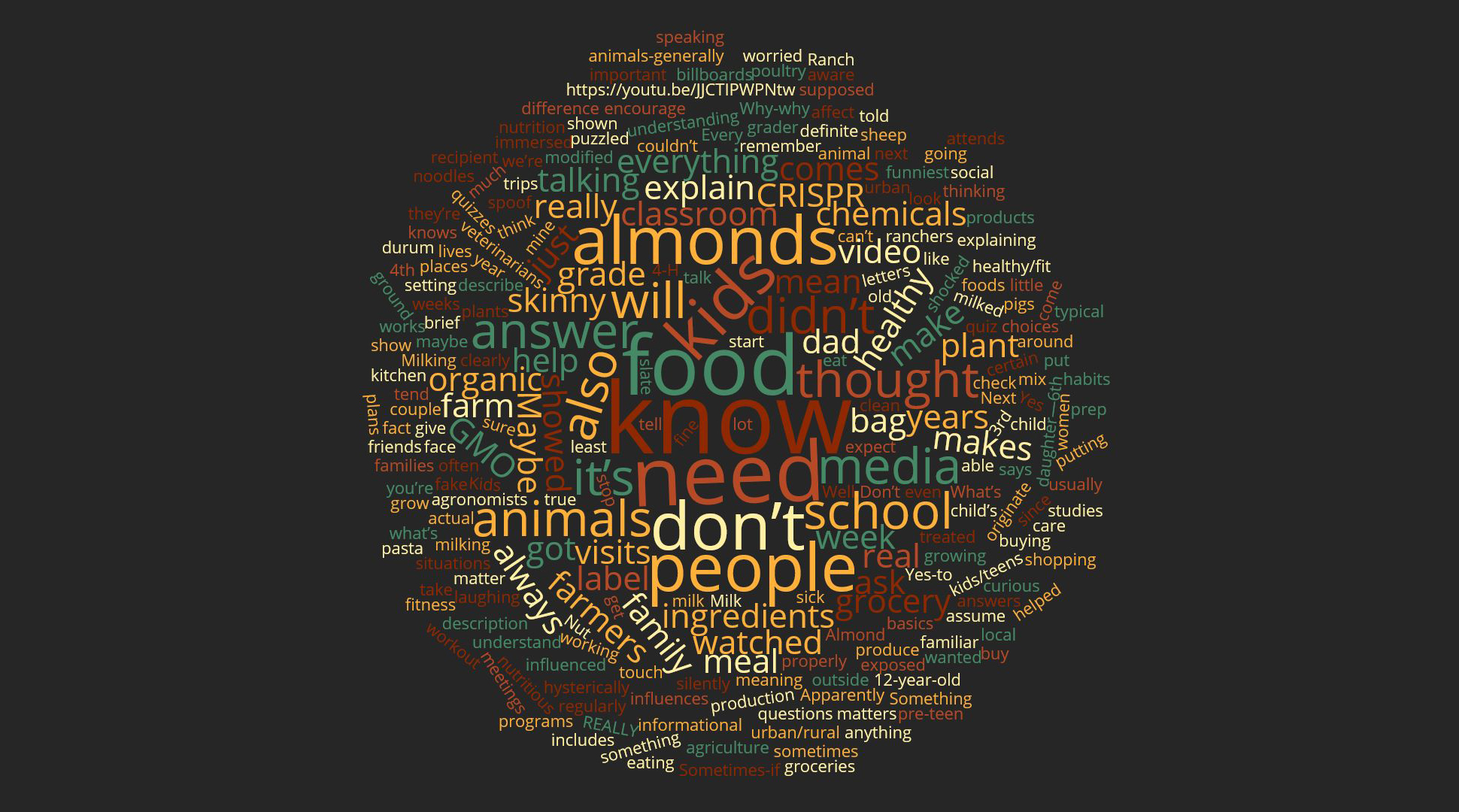by Carie Moore
If you have been on social media, you know about those quizzes you’re supposed to answer to help people to get to know you. It got me to thinking that I should ask my kids about agriculture, food and grocery products. Those of us immersed in ag tend to assume our kids know everything since we’re always talking about it around the kitchen and farm. But I was curious. How much do they REALLY know? Because what they are being told at school, in the media, on billboards, as well as friends and family matters too.
I wanted to know what they know as little people who are going to grow up buying food for their families and make choices when they go on school trips and stop at food places and so on.
The next couple of weeks I will give you a brief description of each child, so you know the situations that would affect their answers.

This week is my 12-year-old daughter. She's in 6th grade and an urban/rural mix setting school. She lives with us on the farm but visits her dad regularly. She has been in 4-H for four years, shown sheep and pigs and is also familiar with poultry. Her dad works at the local durum pasta plant that makes noodles. She has also had the 4th grade North Dakota studies that includes ag in the classroom and has been at my classroom visits over the years. She is usually with when I go grocery shopping and is aware of the meal plans and fitness programs I do. She helps with meal prep. Her eating habits are that of a typical pre-teen: Ranch on everything. She knows how important ag is to our family.
- What is a food label? Something they put on food to show what’s in it.
- Is there a difference between a food label and nutrition fact? Yes
- What makes something “nutritious”? If it has healthy ingredients
- If you are skinny does that mean you are healthy/fit? No - sometimes when people are skinny it’s because they don’t eat
- Are you worried about anything when it comes to your food? Sometimes-if they’re not putting real ingredients in it
- Where does food come from? The ground - and animals
- Do farmers take care of their animals-generally speaking? Why-why not? Most people do - so the animals are healthy.
- What is a GMO? I don’t remember
- What does “organic” mean? Not treated with chemicals
- What’s CRISPR? Don’t know
- Is Almond Milk really milk? Maybe (showed her a bag of almonds) – oh ok NO.
- Do farmers and ranchers need agronomists and veterinarians? Yes - to help with sick animals and to make sure plants are growing properly.
I thought she would be able to describe what a GMO was even if she couldn’t tell me the meaning of the letters. I was shocked the most by answer to #9. We talk a lot about organic and chemicals, or I thought we did. Maybe we don’t explain that as clearly as we need to. I didn’t expect her to know CRISPR, which is fine because at least we have a clean slate to start explaining.
Her funniest answer was #11. She got a puzzled look on her face and said, “Well we watched that video and they were milking almonds so maybe.” When I showed her a bag of almonds, then she was a definite no. Kids are influenced by media. They don’t know if it’s true or not. Apparently as we watched it and we were laughing hysterically at it, she thought it was an actual informational video. This was a spoof, but she didn’t understand that. (View the Nut Milking Exposed video here: https://youtu.be/JJCTIPWPNtw )

I encourage you to ask your kids/teens some of these questions. No matter who we are, there will always be outside influences working silently on our kids. Every so often I think we need to check in and quiz them. If kids like mine really didn’t know that almonds can’t be milked, what will be the urban child’s understanding? We need to touch on the basics of ag but we also need to explain more about production ag. Not just talking about where certain foods originate, but if they are modified and why and what we do to produce food, not just that it comes from a plant or animal.
Next week: Responses from a 9-year-old 3rd grader
